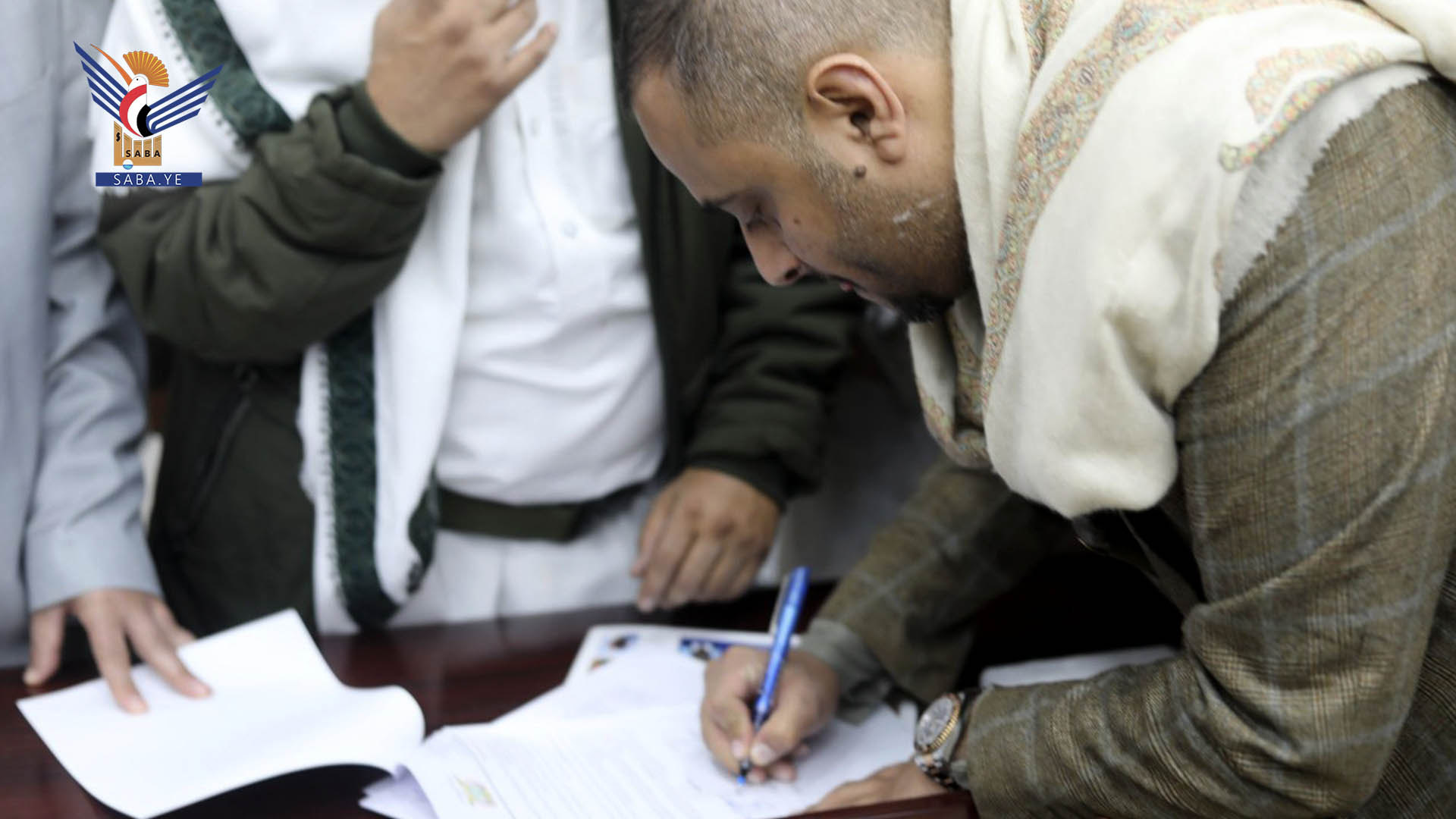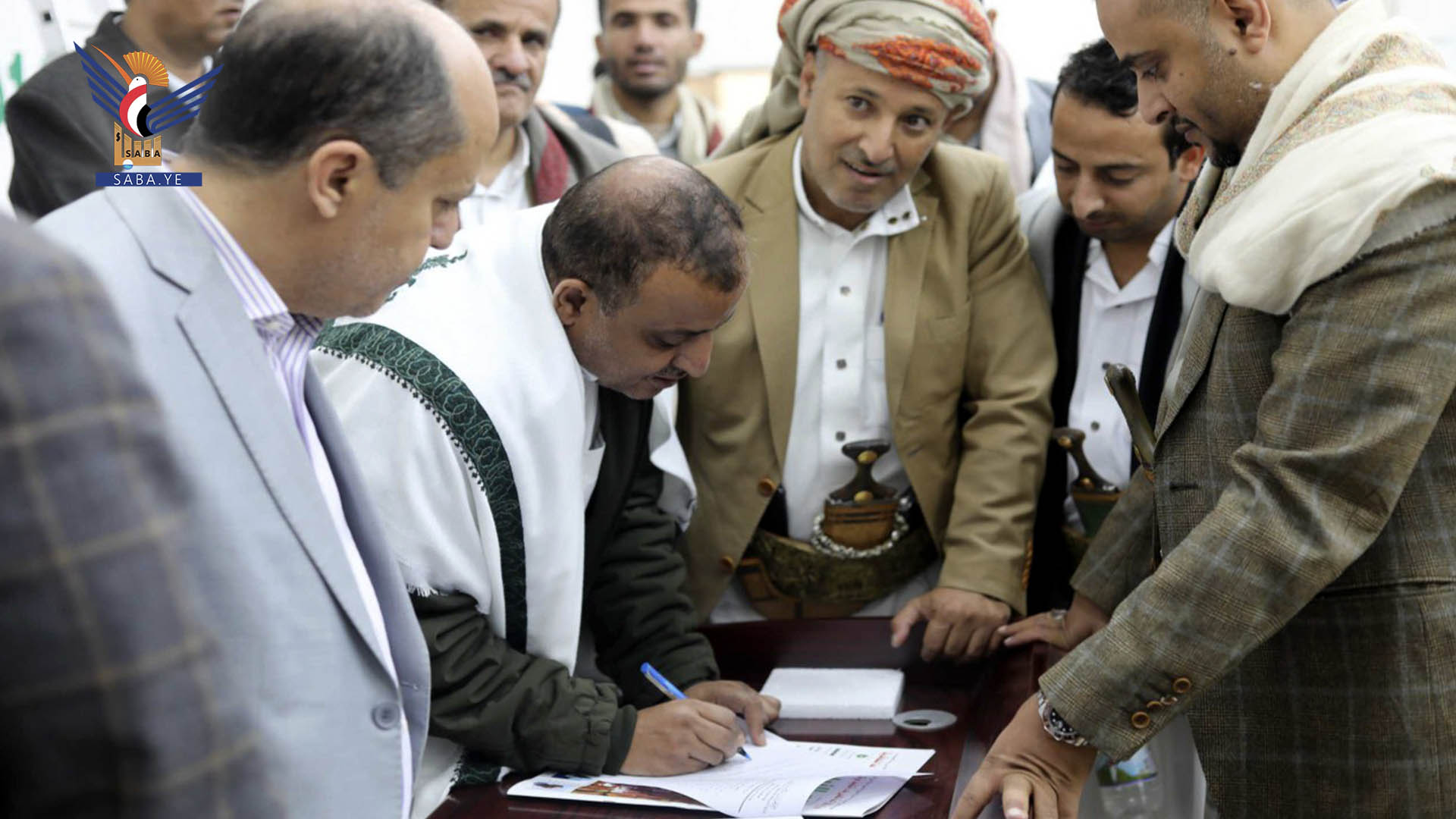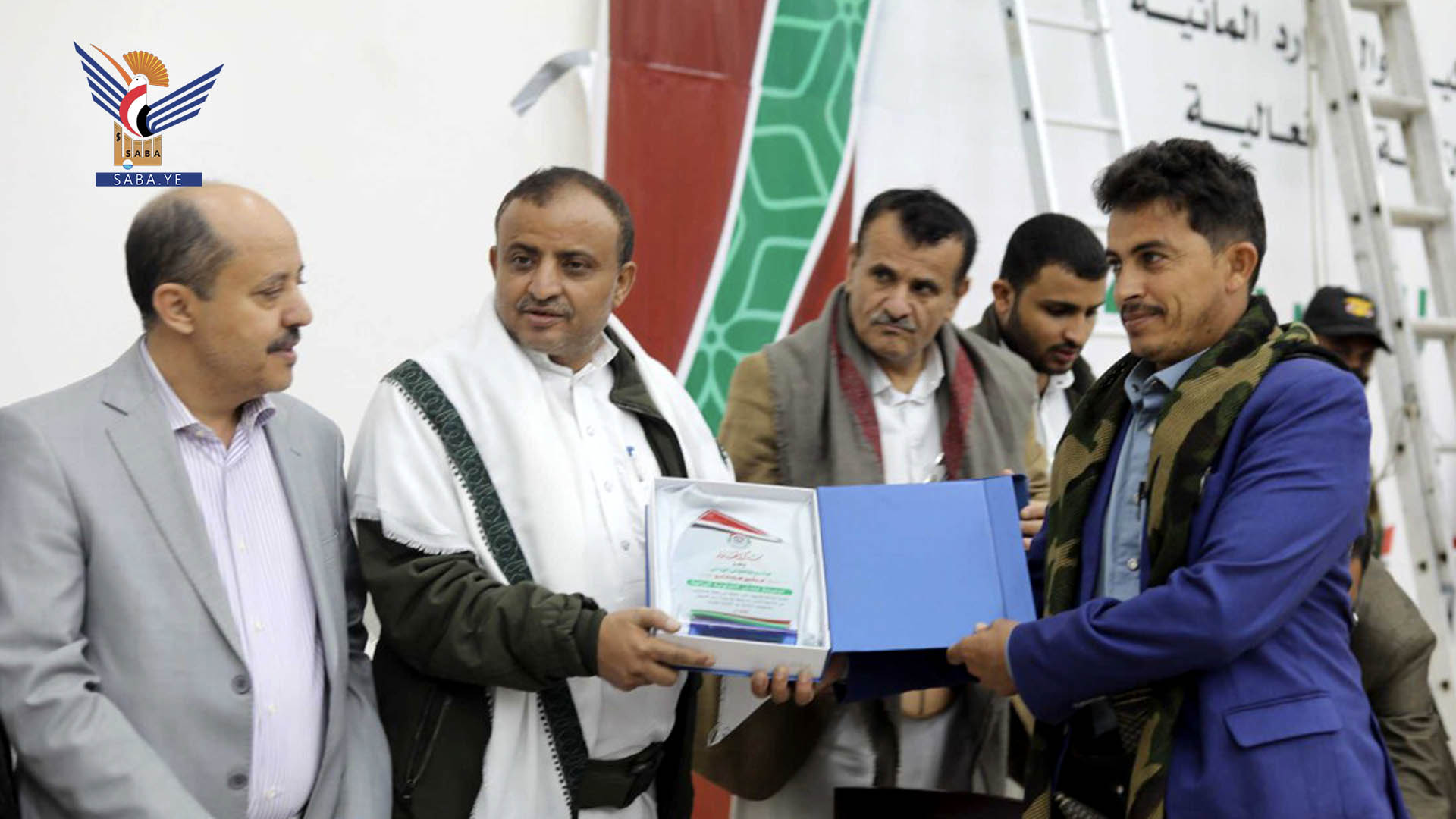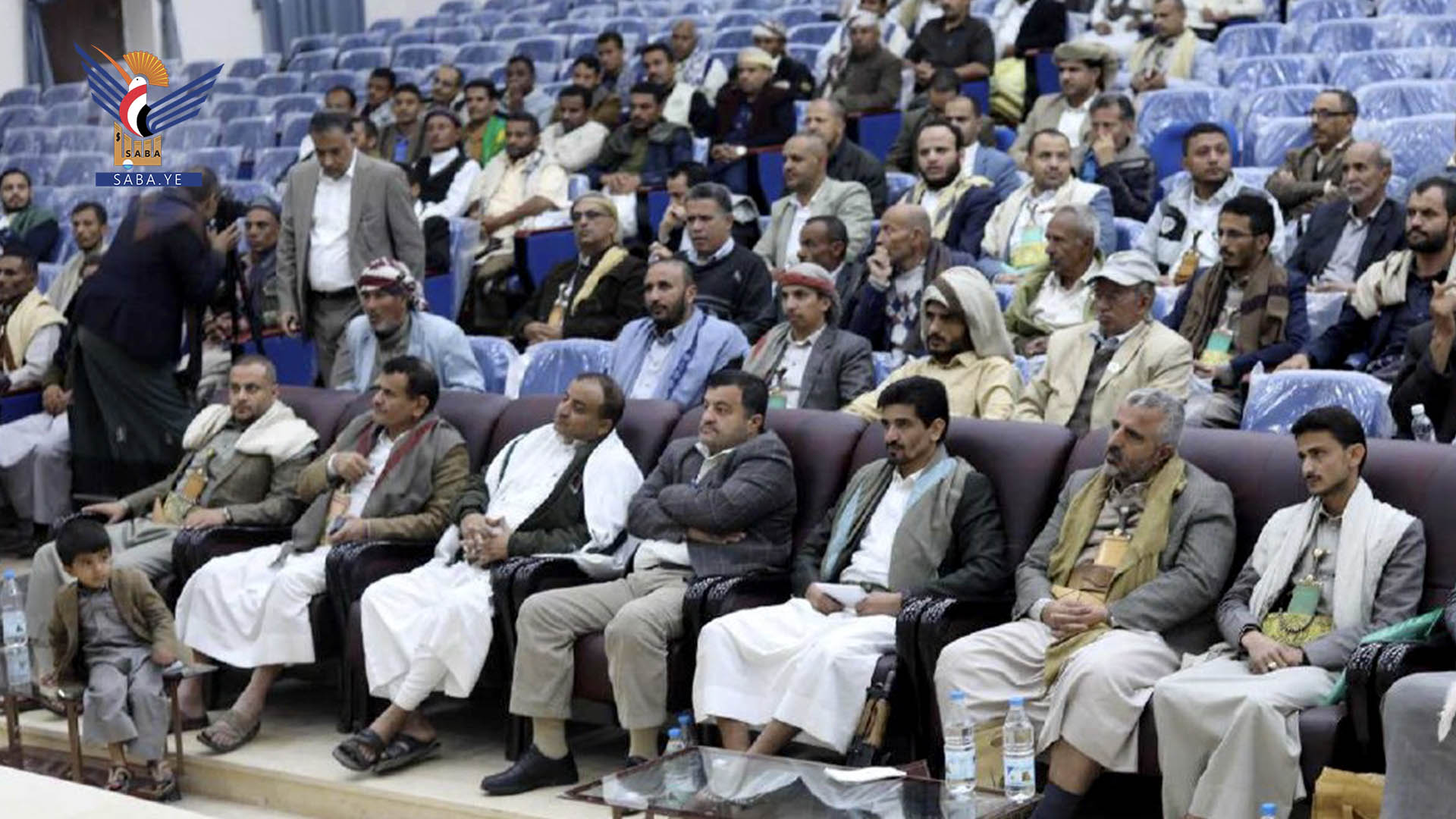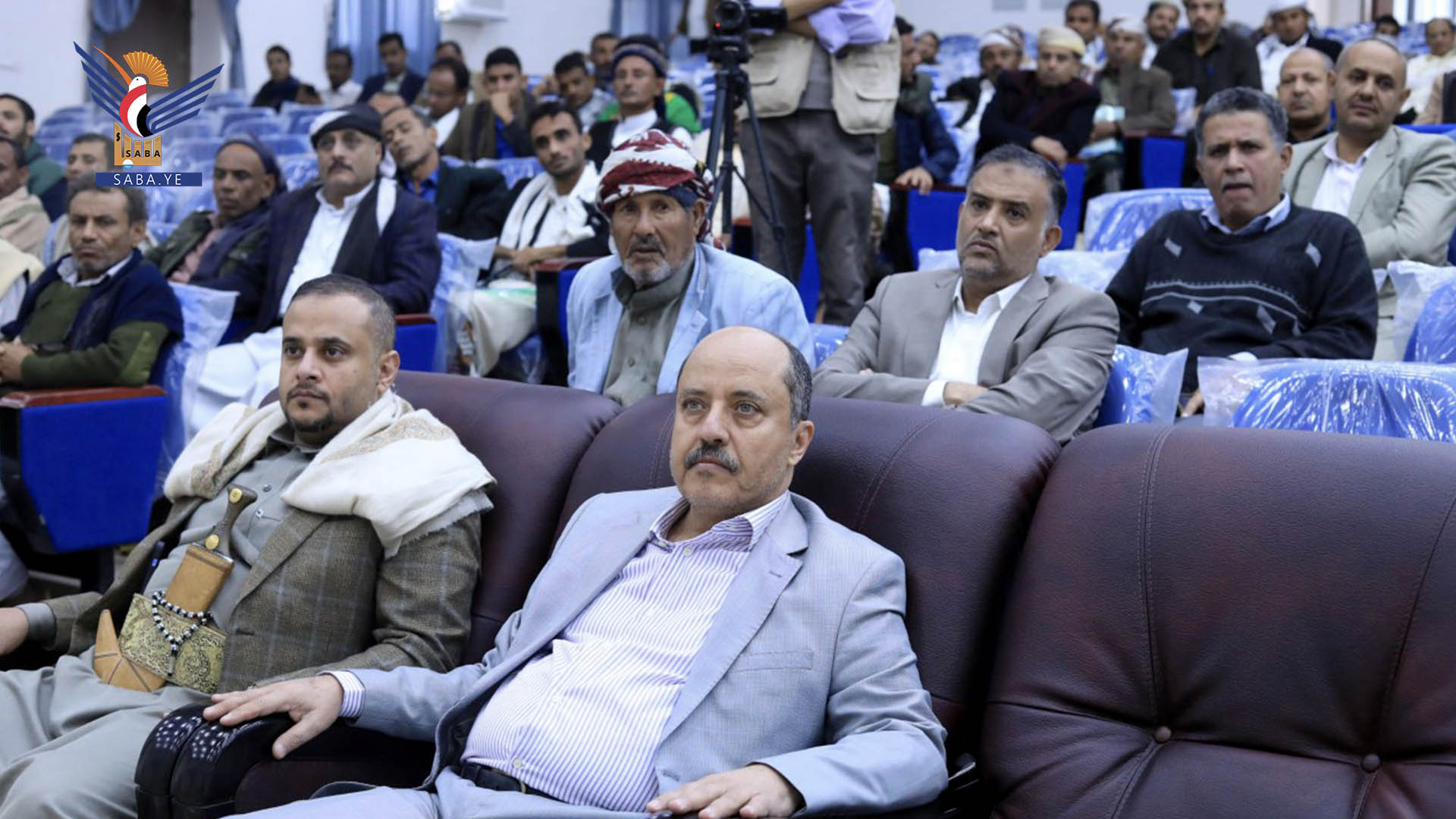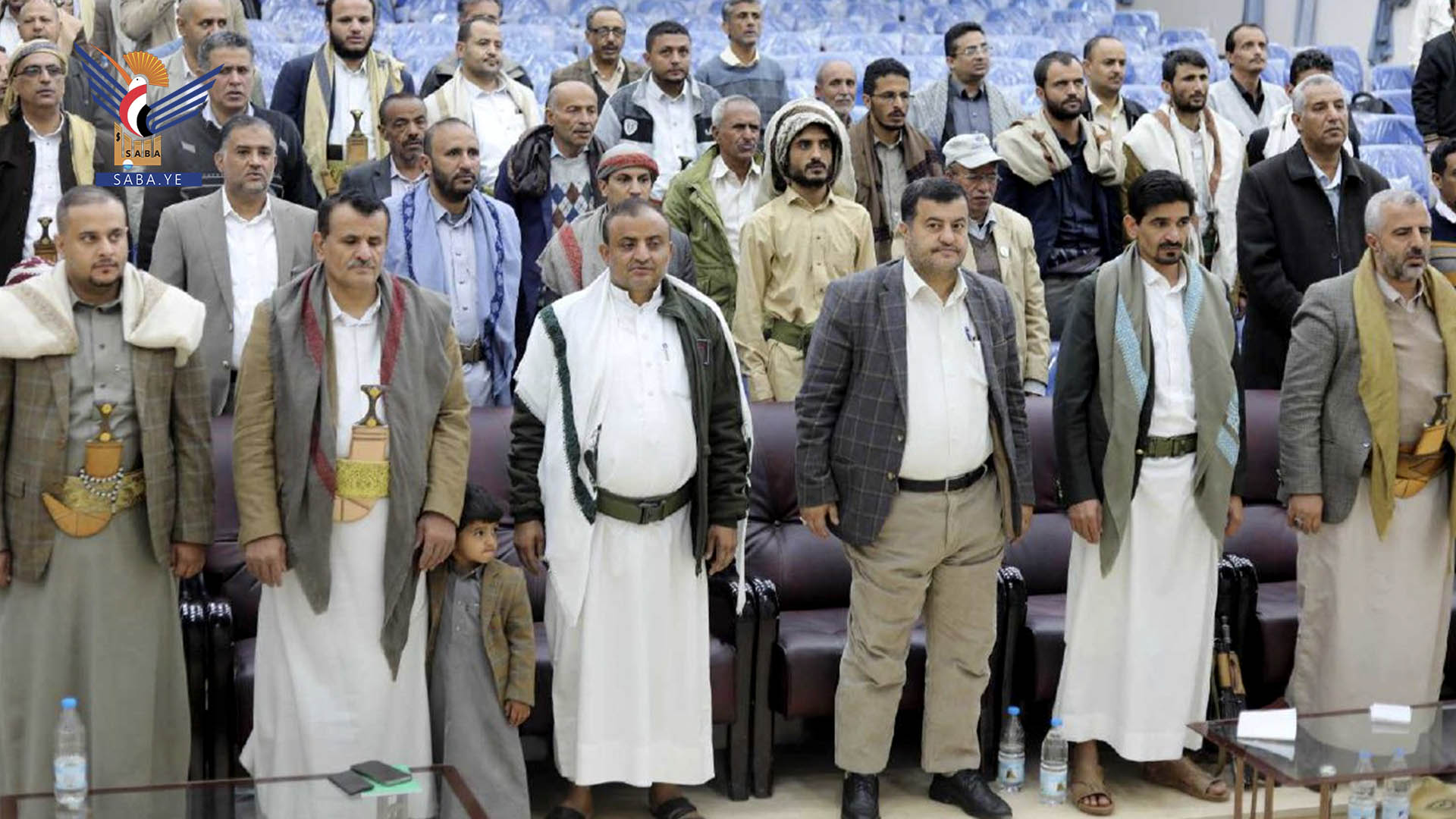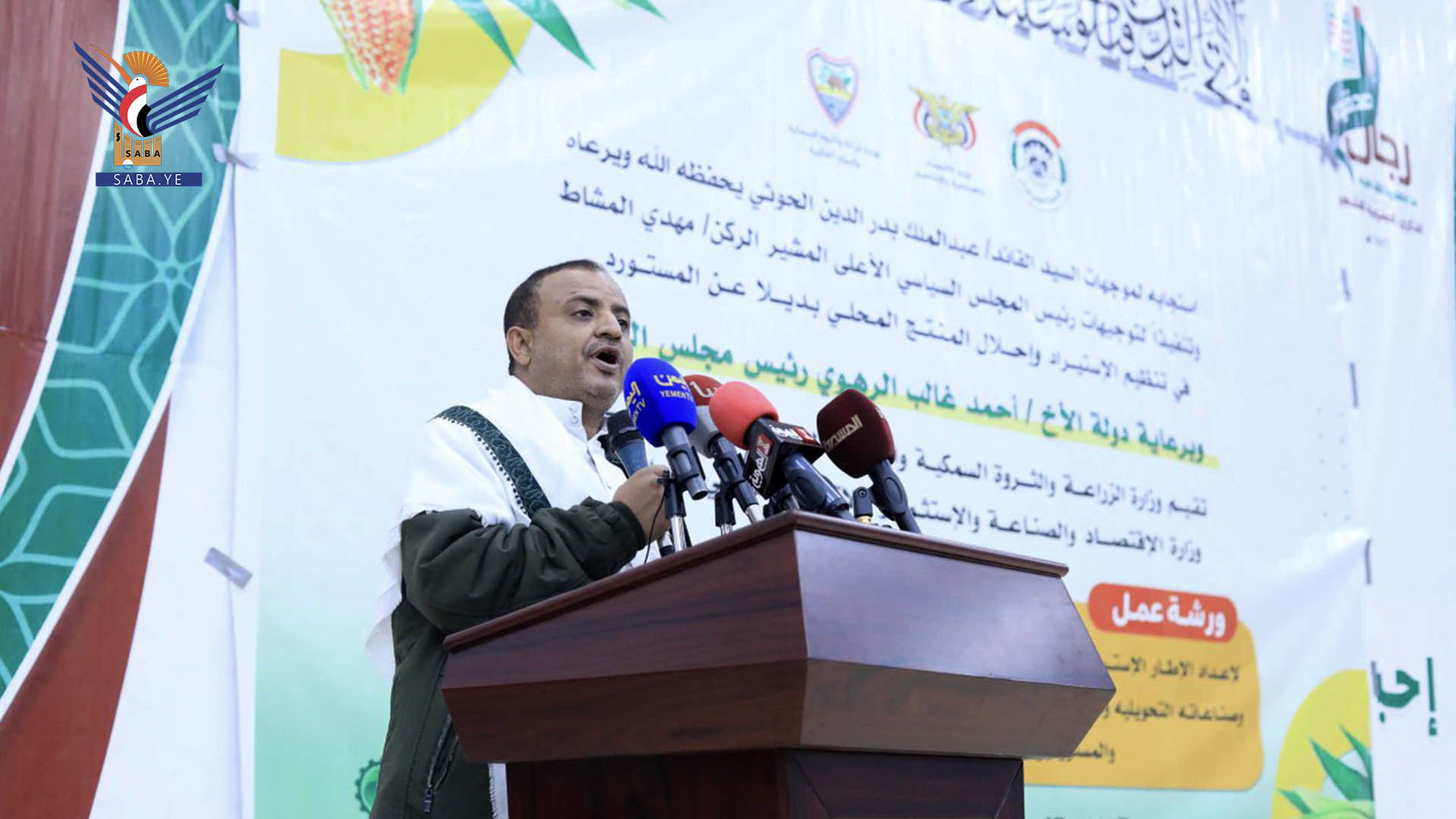
Sana'a-Saba:
A workshop was held in Sana'a today to prepare the strategic framework for managing the import bill for maize and sesame crops and their manufacturing industries, developing its exports, and concluding contract farming contracts between producers (associations), importers, manufacturers, and exporters.
The workshop, organized by the Ministry of Agriculture, Fisheries and Water Resources in coordination with the Ministry of Economy, Industry and Investment and the Agricultural Cooperative Union, aimed to review the plan for the next phase of the season 1446 AH in replacing the local product with the external product.
In the workshop, the Minister of Agriculture, Fisheries and Water Resources, Dr. Radwan Al-Rubai, indicated that the workshop comes in response to the directives of the Leader of the Revolution, Mr. Abdul Malik Badr Al-Din Al-Houthi, and the President of the Supreme Political Council, which emphasizes the interest in the local product, its development, and replacement for imported products.
He pointed out that the workshop focuses on the contract farming program and the launch of the first phase of the strategy to reduce the import bill of agricultural products by replacing the local products with foreign ones.
Minister Al-Rubai stressed that the need has become urgent and necessary to promote local agricultural products in a way that helps reduce the import bill, through concerted efforts by agricultural cooperative societies and the concerned official authorities in the state and the private sector, including exporters and importers, to direct support towards the local product.
He considered the interest in sound practices in agricultural, production, and marketing operations as one of the most prominent factors that help develop the local product and qualify it to be a competitive product in terms of cost and quality, and to be an alternative to the hidden and thus contribute to reducing the import bill.
Dr. Al-Rubai urged the concerted efforts of all and the promotion of research and extension interventions and productive activities to address problems and challenges, in order to achieve the desired goals, and for the local product to be a strategic goal.
"We are facing global competition if the value chain program for our agricultural products does not achieve its goals of increasing production, reducing costs, and improving quality, there will be no success or sustainability for any program," he said.
He stressed that agricultural associations to fulfill their commitment to provide local agricultural products of high quality and competition, as associations are an essential axis and the cornerstone of the success of the program to replace the local product with the importer. He pointed out that one of the conditions of the contract farming program is the fulfillment of contracts by the conditions and standards.
He called on development partners in official work and in the private sector to support the programs of associations in a way that helps to manage the program as required. He also called on traders, exporters, and importers to contract with associations to encourage the replacement of local products instead of foreign ones.
A workshop was held in Sana'a today to prepare the strategic framework for managing the import bill for maize and sesame crops and their manufacturing industries, developing its exports, and concluding contract farming contracts between producers (associations), importers, manufacturers, and exporters.
The workshop, organized by the Ministry of Agriculture, Fisheries and Water Resources in coordination with the Ministry of Economy, Industry and Investment and the Agricultural Cooperative Union, aimed to review the plan for the next phase of the season 1446 AH in replacing the local product with the external product.
In the workshop, the Minister of Agriculture, Fisheries and Water Resources, Dr. Radwan Al-Rubai, indicated that the workshop comes in response to the directives of the Leader of the Revolution, Mr. Abdul Malik Badr Al-Din Al-Houthi, and the President of the Supreme Political Council, which emphasizes the interest in the local product, its development, and replacement for imported products.
He pointed out that the workshop focuses on the contract farming program and the launch of the first phase of the strategy to reduce the import bill of agricultural products by replacing the local products with foreign ones.
Minister Al-Rubai stressed that the need has become urgent and necessary to promote local agricultural products in a way that helps reduce the import bill, through concerted efforts by agricultural cooperative societies and the concerned official authorities in the state and the private sector, including exporters and importers, to direct support towards the local product.
He considered the interest in sound practices in agricultural, production, and marketing operations as one of the most prominent factors that help develop the local product and qualify it to be a competitive product in terms of cost and quality, and to be an alternative to the hidden and thus contribute to reducing the import bill.
Dr. Al-Rubai urged the concerted efforts of all and the promotion of research and extension interventions and productive activities to address problems and challenges, in order to achieve the desired goals, and for the local product to be a strategic goal.
"We are facing global competition if the value chain program for our agricultural products does not achieve its goals of increasing production, reducing costs, and improving quality, there will be no success or sustainability for any program," he said.
He stressed that agricultural associations to fulfill their commitment to provide local agricultural products of high quality and competition, as associations are an essential axis and the cornerstone of the success of the program to replace the local product with the importer. He pointed out that one of the conditions of the contract farming program is the fulfillment of contracts by the conditions and standards.
He called on development partners in official work and in the private sector to support the programs of associations in a way that helps to manage the program as required. He also called on traders, exporters, and importers to contract with associations to encourage the replacement of local products instead of foreign ones.
